I only just read The Great Gatsby for the first time because I wanted to be intimate with someone. Or so the story goes. I’ve owned a copy for 9 years but once I figured out all my teachers and lecturers wanted was a recitation of the notes they’d given me, I became less interested in reading set works. With the movie due out in 2013, however, it seemed like the right time to finally crack the spine on this thing. Maybe if I’d paid more attention to why I do things at the time, I could’ve tried for that intimacy thing too.
The neat thing about discovering this book for the first time in 2013 is that I came to it with a fresh pair of eyes. And I don’t mean that I brought some new perspective to it. I mean that somehow I’d managed to live through to my 20s without ever learning the plot details of a novel that written almost 100 years ago. Scratch that. I’m talking about what is probably the most popular and influential novel of the last century.
Obviously I’d detected that it was about a fella named Gatsby, and I guess a few things slipped into my head by way of cultural osmosis and some of the reading I’d done about the novel’s author, F Scott Fitzgerald. The name Daisy Buchanan immediately struck me as familiar, as if I’d pined after her for years myself, and I knew somehow that the nouveau riche thing Gatsby had going for him was all part of a sham or scam, but that last part may have something to do with my general resentment toward the rich. Or because it’s a trope that’s been used a million times since this novel came out. Whatever the case, I did know Gatsby was a guy who threw parties for society’s most vapid and glamorous in the roaring ‘20s, and that there was something about love in the novel. Not that it’s a story about love. Love is like the Heather Locklear of this novel; a special guest star.
The Great Gatsby is a slim book filled with many, many ideas. It’s about hope and hubris and passion and desperation and the hopes and fears that drive us. There’s so much to say, where do I even begin?
I guess I’ll start by telling you that I left the movie a little bit sadder than when I entered. Maybe it was that I had something itching at the back of my brain before I went in, or maybe director Baz Luhrman so effectively drew me into the experience of the story, and that of the titular character, that I couldn’t get away with watching this thing on autopilot. Gatsby shared the sorts of things with me that you say conspiratorially to your friends in the dark after too many drinks or a particularly effective batch of drugs kicks in. Despite the issue of a little temporal separation from its setting, the novel’s themes still resonate perfectly with our experiences today. The parties that everyone will be at, the fame-hungry débutantes and the desperate people clawing at gaudy spectacle, hoping for things that are made to distract to mean something deeper.
Gatsby the man wears a veneer of certainty, confidence and eloquence that we’d all find alluring, but he does it so he can be what he needs to be to have what he wants. It may make him seem appealing at first glance but that’s only for the sort of people who interact with others on a superficial level. After all, the real beauty in things isn’t in how easily they contrast with the ugly parts of our lives. The real beauty’s always right down there in the filth and the dark with us.
You’re human so you’re already familiar with everyone’s personal quests for recognition, and if you grew up after Elvis and The Beatles were a thing, you can’t even pretend you aren’t aware of the tiniest speck of that fame-hungry gene we were all born with. Or, if you prefer, a certain existential quest for acceptance that we all feel we must be on all of the time.
Luhrmann perfectly represents this quest with a high contrast plot structure that lures into the lush 1920s New York he’s created in the movie’s first third, then drops you in the washed out despair of the third act. As with all things, there are flaws, but they’re not in how he chooses to translate the novel’s plot for film. Instead it looks like the auteur spent painstaking hours recreating lengthy conversations and sequences in his signature lavish style but ultimately couldn’t use most of them without delivering us a 4-hour-long experience. It’s because of this that the movie begins with some erratic editing that keeps your eyes and brain in a constant war to decide what aspect of the spectacle to focus on. Things become more accommodating as the story gains momentum, even if we occasionally have to cut back to Tobey Maguire’s dry narration, represented by having words he’s writing actually leap out at us, a technique that gets old instantly.
That’s not indicative of how Luhrmann uses the 3D throughout the story. Instead he’s a master with it from the word go, immersing you completely in the party atmosphere with long trailing shots that make Gatsby’s mansion seem to sprawl on across the screen and off into the horizon.
If there’s a real weak point in the film, it’s Tobey Maguire, whose always been a schizophrenic performer to me. He can really dig deep sometimes and deliver lines with genuine anguish, but mostly he just drifts through scene after scene with a confused dopiness, looking like he stumbled into someone else’s world again and doesn’t know what to do with himself. And I realize that’s what he’s supposed to be experiencing, but he doesn’t sell it as anything other than performance, and having his voice carry us through this story – especially in moments when narration really isn’t required – is distracting. Carey Mulligan does a pretty good job at making Daisy seem like the perfect mix of empty and contemplative, but at times she almost feels wasted in the role. She’s a great performer and could’ve been more fully developed in every scene that we spend with Maguire instead.
The star performances, however, come from Joel Edgerton and, of course, from Leo. Edgerton plays Tom Buchanan with the perfect mix of macho bravado and insecure desperation. He perfectly encapsulates how overconfident this guy is about everything he does, but how aggressive he becomes when he’s backed into a corner. He also borrows heavily from actual period acting traditions, or at least appears to, lending his performance a strange theatrical authenticity.
Leo is in another league. Without him this would’ve been a good movie, but he elevates the entire damn thing every moment he’s on screen. His Gatsby is charming as he is clingy, and intense as he is subdued. It’s a perfect human balance that no other actor of his generation could really capture. He’s perfect in the role and does nothing but make you want to see him succeed, even when he goes about things the wrong way, because you can smell the stench of hope all over him.
Hope is what fuels his performance and keeps it engaging throughout, and I think that’s what buoyed this entire picture, along with Luhrmann’s confident directing. There are editing issues a’plenty at the start, but it all quickly takes on a rhythm of its own. It’s been a long time since I’ve been so completely immersed in a film’s characters, stories and world. Everything from the visuals to the way the score is worked into the action is there for a reason and it’s done expertly. I highly, highly recommend you see this film. It’ll restore your hope for modern cinema, even if it erodes a little of your faith in the modern human.
Related Posts
Nas Who
Latest posts by Nas Who (see all)
- ‘Dawn Of The Planet Of The Apes’ Does Trailers Right [Video] - January 9, 2014
- Throwback Thursday: It’s Haddaway’s Birthday – What IS Love? - January 9, 2014
- The 1998 Louis C.K. Film No One’s Seen – Starring Steve Carell & Amy Poehler [Video] - January 8, 2014

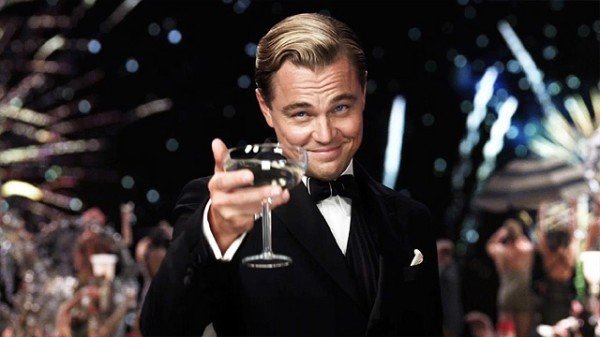
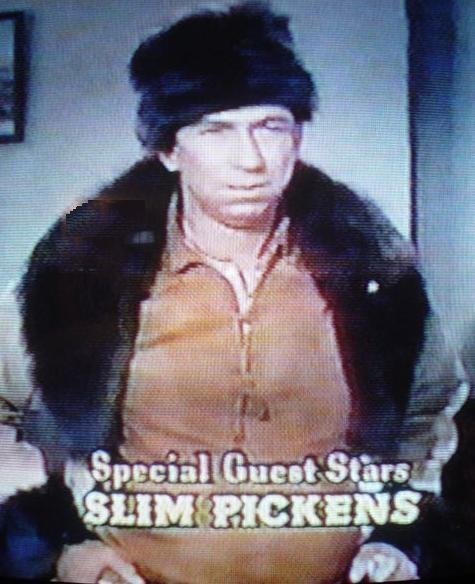
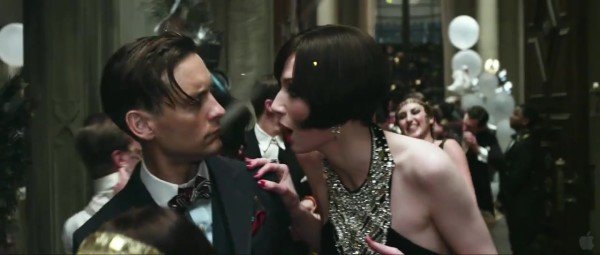
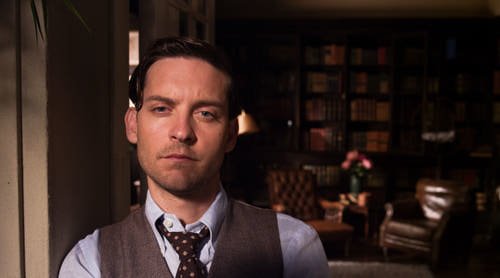
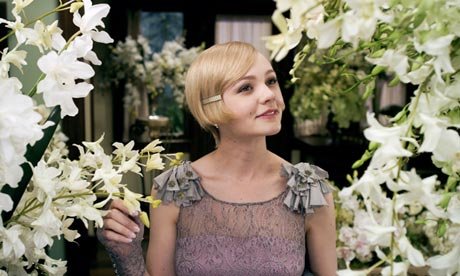

![‘Shame’ is The Most Honest Film I’ve Ever Seen [Review]](/wp-content/uploads/2012/05/shame08-150x150.jpg)
![‘Django Unchained’ is Quentin Tarantino’s Subtle Study of Violence [Review]](/wp-content/uploads/2013/02/Django-Unchained-150x150.jpg)
